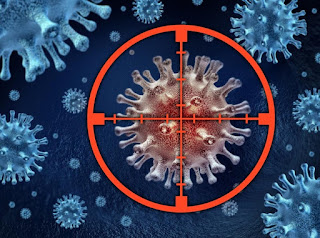Multimodal Therapy Improve Survival For Mesothelioma Patients
Multimodal therapy, or multimodality therapy, is the combination of several cancer treatments (or modalities), including surgery, chemotherapy, and radiation. Multimodal therapy may also include certain experimental treatments. For mesothelioma patients, multimodal therapy has been clinically shown to possibly improve survival. While a single treatment may not be effective on its own, a combination of treatments may be more successful at destroying cancer cells. Multimodal treatment is considered one of the standard treatment options for stage II, III, and IV malignant mesothelioma and may be considered in stage I disease.
Treatment Components of Multimodal Therapy
Surgery
Surgery may be palliative or potentially curative, though options are limited for mesothelioma patients. Multimodality therapy including surgery has become a standard treatment of mesothelioma in patients with surgically removable tumors.
Radiation Therapy
Radiation is used in all stages of mesothelioma and can reduce symptoms and disease recurrence. As a multimodal therapy, intraoperative radiation is often used after a pleurectomy/decortication surgery.
Chemotherapy
The main chemotherapy treatment used in multimodal mesothelioma treatment is the combination of cisplatin and pemetrexed. Chemotherapy alone is only modestly effective in treating malignant pleural mesothelioma. However, adding a chemotherapeutic regimen to other treatment modalities, such as radiation therapy and surgery, improves survival.
Emerging and Experimental Treatments
There are a number of emerging and experimental treatments that are used in multimodal therapy. These are treatments that are currently being tested during clinical trials and include immunotherapy, gene therapy, photodynamic therapy, and more.
Trimodal Therapy
Malignant mesothelioma is difficult to completely remove with surgery alone. Because the tumor invades such sensitive structures as the diaphragm, esophagus, and heart, surgeons cannot remove a sufficient margin of healthy tissue around the tumor to make sure that all cancer cells have been removed. Therefore, additional cancer fighting treatments are needed.
Trimodal therapy for malignant pleural mesothelioma is the use of all three standard mesothelioma treatments—surgery, radiation therapy, chemotherapy—in some order. It is now widely accepted by oncologists and cancer researchers that more than one treatment modality is better than any single treatment for mesothelioma. A number of studies have shown that a trimodal approach provides the greatest benefit in terms of survival in select patients who can tolerate all three treatments. Indeed, most clinical practice guidelines for malignant pleural mesothelioma recommend trimodality therapy.
Given the relative rarity of malignant pleural mesothelioma, clinical practice guidelines also recommend that anyone undergoing trimodal therapy should be enrolled in a clinical trial whenever possible.
Choosing The Best Order of Treatment
While trimodal therapy is widely accepted as a standard treatment for malignant pleural mesothelioma, the order of treatments is a matter of debate.
Any of the treatment options can be what’s called the primary therapy, an adjuvant or a neoadjuvant therapy.
- Neoadjuvant Therapy — Any treatment given before primary therapy to improve results.
- Primary Therapy — Considered the most effective treatment option. This will most often be surgery.
- Adjuvant Therapy — Any treatment administered after primary therapy to alleviate symptoms and prevent cancer from returning.
In most cases, trimodal therapy will begin with chemotherapy followed by surgery (i.e., extrapleural pneumonectomy) and will finish with external beam, hemithoracic radiation therapy. Second most commonly, the patient first undergoes surgery followed by chemotherapy and radiation therapy. Less common approaches combine surgery with intracavitary chemotherapy followed later by radiation therapy. In some trimodal treatment combinations, hemithoracic radiation is replaced with intensity-modulated radiation therapy (IMRT).
Survival Rates
There is no clearly superior order of treatments in trimodality therapy. When surgery comes first, median survival ranges from 17 months to 28 months, and 39% to 81% of patients complete all three phases of treatment. When chemotherapy is administered before surgery, median survival ranges from 14 to 25.5 months and 32% to 69% of patients fully complete trimodal therapy.
Recent clinical trials have focused on pleurectomy with decortication in trimodality therapy. This surgical approach is associated with fewer complications than extrapleural pneumonectomy and, perhaps, better overall survival when incorporated in a trimodal therapy regimen. Moreover, 84% to 94% of patients were able to complete trimodal therapy when pleurectomy with decortication was used. One small clinical trial reported median survival of 30 months using this surgical approach. While the type of surgery used in trimodal therapy should be individualized to the patient’s circumstances, initial reports of a higher completion rate with pleurectomy and decortication are promising.
The course of therapy is different for each patient. A multidisciplinary team of cancer specialists decides on the best order of treatments based on patient preferences and circumstances.
Creating a Treatment Plan
Not everyone with malignant pleural mesothelioma is a candidate for multimodal therapy. Prior to this treatment, several diagnostic tests need to be run to determine a patient’s suitability for surgery, whether it is extrapleural pneumonectomy or pleurectomy with decortication. At a minimum, patients will undergo the following examinations:
- Physical examination – If other health problems are present, is the patient healthy enough to undergo major surgery?
- Pulmonary function testing – Will the patient have enough lung function in the remaining lobes of the lung after the diseased lung has been removed?
- Cardiac function testing – Does the patient have a strong enough heart to maintain blood pressure after some of the pulmonary blood vessels have been removed? Is the patient’s heart strong enough to undergo major surgery?
- Radiological studies – Radiological studies such as CT, MRI, and PET scans may be used to determine whether cancer cells have extended well beyond the affected lung to distant sites. If they have, trimodal therapy may not be successful.
- Histological examination – Patients do better if their mesothelioma is of the epithelial type rather than sarcomatoid. Because of the aggressive nature of sarcomatoid mesothelioma, doctors may decide not to use multimodal therapy. A third cancer cell type called biphasic mesothelioma has both epithelial and sarcomatoid cells. The prognosis for biphasic mesothelioma is not as good as epithelial mesothelioma, but multimodal therapy can still proceed with this cancer type.
Sources:
Weder W, Opitz I. Multimodality therapy for malignant pleural mesothelioma. Annals of Cardiothoracic Surgery. 2012;1(4):502-507. doi:10.3978/j.issn.2225-319X.2012.11.12
Ai J, Stevenson JP. Current Issues in Malignant Pleural Mesothelioma Evaluation and Management. The Oncologist. 2014;19(9):975-984. doi:10.1634/theoncologist.2014-0122
Jaklitsch MT, Grondin SC, Sugarbaker DJ. Treatment of malignant mesothelioma. World J Surg. Feb 2001;25(2):210-217.
Sugarbaker DJ, Flores RM, Jaklitsch MT, et al. Resection margins, extrapleural nodal status, and cell type determine postoperative long-term survival in trimodality therapy of malignant pleural mesothelioma: results in 183 patients. J Thorac Cardiovasc Surg. Jan 1999;117(1):54-63; discussion 63-55.
Rusch VW, Rosenzweig K, Venkatraman E, et al. A phase II trial of surgical resection and adjuvant high-dose hemithoracic radiation for malignant pleural mesothelioma. J Thorac Cardiovasc Surg. Oct 2001;122(4):788-795. doi:10.1067/mtc.2001.116560.
Ebara T, Kawamura H, Kaminuma T, et al. Hemithoracic Intensity-modulated Radiotherapy Using Helical Tomotherapy for Patients after Extrapleural Pneumonectomy for Malignant Pleural Mesothelioma. Journal of Radiation Research. March 1, 2012 2012;53(2):288-294. doi:10.1269/jrr.11130.
Zauderer MG, Krug LM. The Evolution of Multimodality Therapy for Malignant Pleural Mesothelioma.Current Treatment Options in Oncology. 2011;12(2):163-172. doi:10.1007/s11864-011-0146-4.
Baldini EH. External beam radiation therapy for the treatment of pleural mesothelioma. Thorac Surg Clin. Nov 2004;14(4):543-548. doi:10.1016/s1547-4127(04)00108-2.
Vogelzang NJ, Rusthoven JJ, Symanowski J, et al. Phase III study of pemetrexed in combination with cisplatin versus cisplatin alone in patients with malignant pleural mesothelioma. J Clin Oncol. Jul 15 2003;21(14):2636-2644. doi:10.1200/jco.2003.11.136.
Thieke C, Nicolay NH, Sterzing F, et al. Long-term results in malignant pleural mesothelioma treated with neoadjuvant chemotherapy, extrapleural pneumonectomy and intensity-modulated radiotherapy.Radiation Oncology (London, England). 2015;10:267. doi:10.1186/s13014-015-0575-5.
Tilleman TR, Richards WG, Zellos L, et al. Extrapleural pneumonectomy followed by intracavitary intraoperative hyperthermic cisplatin with pharmacologic cytoprotection for treatment of malignant pleural mesothelioma: a phase II prospective study. J Thorac Cardiovasc Surg. Aug 2009;138(2):405-411. doi:10.1016/j.jtcvs.2009.02.046.
Bretti S, Berruti A, Dogliotti L, et al. Combined epirubicin and interleukin-2 regimen in the treatment of malignant mesothelioma: a multicenter phase II study of the Italian Group on Rare Tumors. Tumori. Sep-Oct 1998;84(5):558-561.
Parra HS, Tixi L, Latteri F, et al. Combined regimen of cisplatin, doxorubicin, and alpha-2b interferon in the treatment of advanced malignant pleural mesothelioma: a Phase II multicenter trial of the Italian Group on Rare Tumors (GITR) and the Italian Lung Cancer Task Force (FONICAP). Cancer. Aug 1 2001;92(3):650-656.
Alley EW, Molife LR, Santoro A, et al. Abstract CT103: Clinical safety and efficacy of pembrolizumab (MK-3475) in patients with malignant pleural mesothelioma: Preliminary results from KEYNOTE-028.Cancer Research. August 1, 2015 2015;75(15 Supplement):CT103. doi:10.1158/1538-7445.am2015-ct103.
Pasello G, Favaretto A. Molecular targets in malignant pleural mesothelioma treatment. Curr Drug Targets. Dec 2009;10(12):1235-1244.
Greillier L, Marco S, Barlesi F. Targeted therapies in malignant pleural mesothelioma: a review of clinical studies. Anticancer Drugs. Mar 2011;22(3):199-205. doi:10.1097/CAD.0b013e328341ccdd.
Kapeles M, Gensheimer MF, Mart DA, et al. Trimodality Treatment of Malignant Pleural Mesothelioma: An Institutional Review. Am J Clin Oncol. Aug 27 2015. doi:10.1097/coc.0000000000000225.
Krug LM, Pass HI, Rusch VW, et al. Multicenter phase II trial of neoadjuvant pemetrexed plus cisplatin followed by extrapleural pneumonectomy and radiation for malignant pleural mesothelioma. J Clin Oncol. Jun 20 2009;27(18):3007-3013. doi:10.1200/jco.2008.20.3943.
Cao C, Tian D, Manganas C, Matthews P, Yan TD. Systematic review of trimodality therapy for patients with malignant pleural mesothelioma. Ann Cardiothorac Surg. Nov 2012;1(4):428-437. doi:10.3978/j.issn.2225-319X.2012.11.07.
Maggi G, Casadio C, Cianci R, Rena O, Ruffini E. Trimodality management of malignant pleural mesothelioma. Eur J Cardiothorac Surg. Mar 2001;19(3):346-350.
van Zandwijk N, Clarke C, Henderson D, et al. Guidelines for the diagnosis and treatment of malignant pleural mesothelioma. Journal of Thoracic Disease. 2013;5(6):E254-E307. doi:10.3978/j.issn.2072-1439.2013.11.28.
Baas P, Fennell D, Kerr KM, Van Schil PE, Haas RL, Peters S. Malignant pleural mesothelioma: ESMO Clinical Practice Guidelines for diagnosis, treatment and follow-up. Ann Oncol. Sep 2015;26 Suppl 5:v31-39. doi:10.1093/annonc/mdv199.
Flores RM, Pass HI, Seshan VE, et al. Extrapleural pneumonectomy versus pleurectomy/decortication in the surgical management of malignant pleural mesothelioma: results in 663 patients. J Thorac Cardiovasc Surg. Mar 2008;135(3):620-626, 626 e621-623. doi:10.1016/j.jtcvs.2007.10.054.
Scherpereel A, Astoul P, Baas P, et al. Guidelines of the European Respiratory Society and the European Society of Thoracic Surgeons for the management of malignant pleural mesothelioma. European Respiratory Journal. 2010-03-01 00:00:00 2010;35(3):479-495. doi:10.1183/09031936.00063109.









